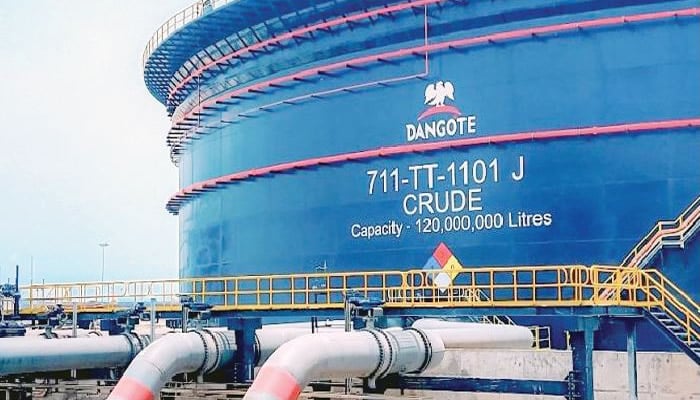
The Dangote Petroleum Refinery has resumed the loading of Premium Motor Spirit (PMS), commonly known as petrol, on trucks for oil marketers, following a temporary halt caused by challenges associated with the Naira-for-crude programme, rising crude oil prices, and foreign exchange issues.
The 650,000 barrels per day (bpd) refinery, valued at $20 billion, had previously suspended loading trucks based on payments made in Naira, although loading by ships on a dollar basis continued. To address the situation, the refinery requested oil marketers to “top up” payments to enable continued supply.
Industry sources confirmed that many companies, including MRS Oil & Gas, have complied with the new arrangement and resumed loading at N880 per litre as of yesterday.
Rising Petrol Prices Across Nigeria
Amid the resumption of truck loading, petrol prices have surged nationwide, with pump prices now reaching up to N960 per litre. According to the latest price list obtained from MRS Oil & Gas, which became effective on March 28, 2025, the cost of petrol varies across regions, with Lagos having the lowest price at N930 per litre.
States in the South West, including Ogun, Oyo, Osun, Ekiti, Kwara, and Ondo, will pay N940 per litre, while the South South and South East regions, comprising Edo, Abia, Akwa Ibom, Bayelsa, Rivers, Cross River, and Enugu, will see prices as high as N960 per litre.
In Abuja and parts of the North Central, such as Kaduna, Benue, Kogi, Niger, Sokoto, Kebbi, and Nasarawa, the pump price stands at N950 per litre. Meanwhile, northern states including Zamfara, Kano, Jos, Bauchi, Taraba, Adamawa, Borno, Katsina, Jigawa, Gombe, and Yobe will pay the highest rate of N960 per litre.
A Shift from Naira for Crude
The Naira-for-crude scheme, initially designed to bolster domestic fuel supply and curb import costs, enabled Dangote Refinery to receive 48 million barrels of crude oil in Naira since October 2024, with a cumulative supply of 84 million barrels since operations commenced in 2023.
The refinery, one of Africa’s largest industrial projects, aims to meet 100% of Nigeria’s refined product requirements while generating a surplus for export. According to its official website, the facility is expected to create a market worth $21 billion per annum for Nigerian crude oil, while also processing other grades of crude as needed.
As the refinery ramps up operations amid the latest price adjustments, stakeholders and consumers alike brace for the economic ripple effects of rising fuel costs.
Comments